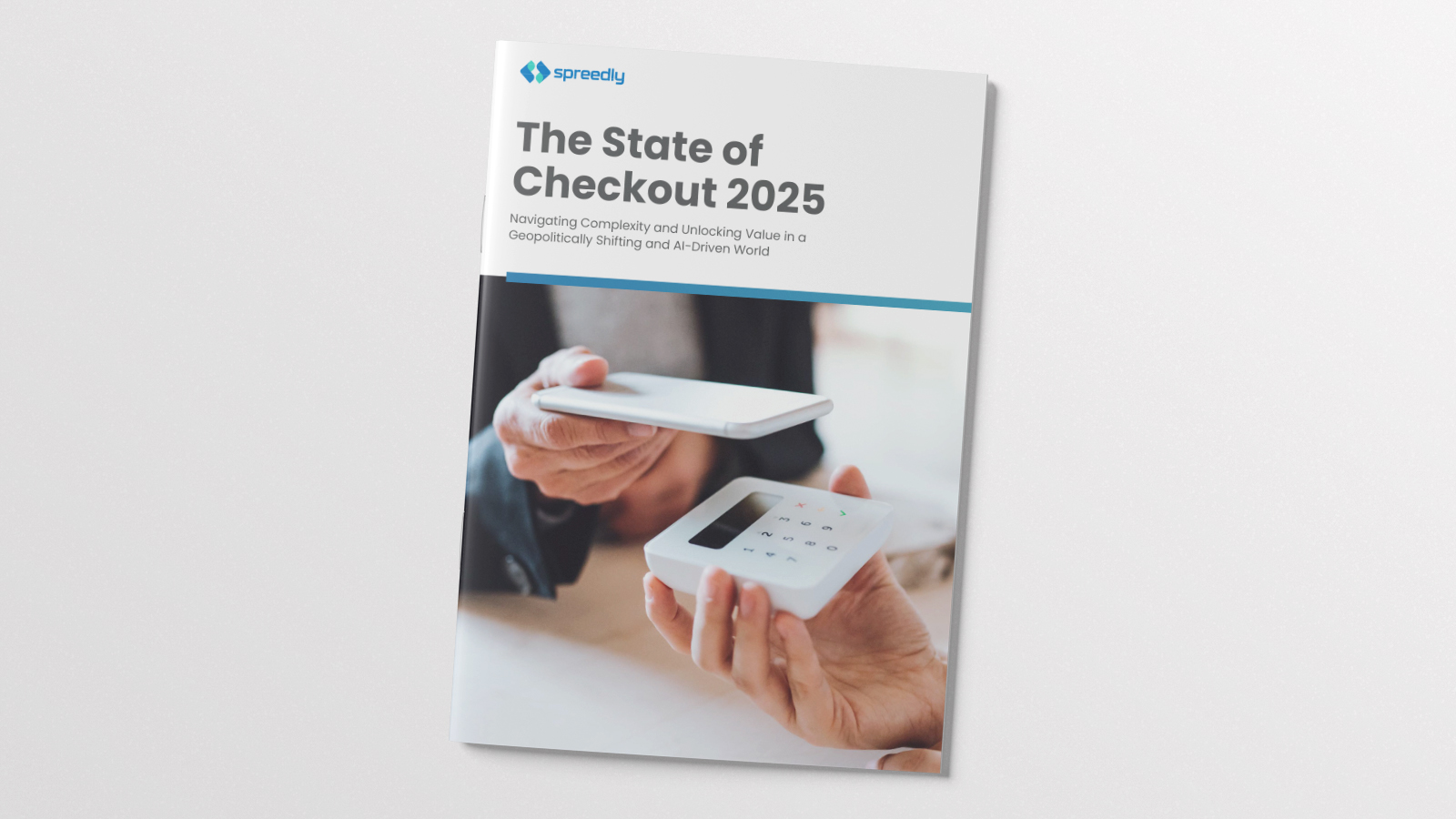
What does payment orchestration truly mean in 2024?
At the recent MRC Las Vegas 2024 conference, Spreedly’s CEO Justin Benson sat down with a panel of experts to discuss the evolving definition of payment orchestration. Let’s dive into some of the key insights from this panel discussion and what it means for the future of orchestration.

Gaining Deeper Insights into the Benefits of Payments Orchestration
As more companies have embraced payments orchestration, the definition of the practice has naturally evolved and grown as merchants, platforms, and others adapt their own payments stacks.
For many, orchestration provides the means to take action within the payments industry without having to go overboard in terms of developmental effort.
In addition to allowing businesses of all kinds to take a more proactive approach to payments, an open payments platform has also been proven to enable:
- Optimized Engineering Resources: Through orchestration, your business can increase engineering capacity on both front and back-end projects. Orchestration allows you to reduce churn and improve the checkout process without overstraining your development teams. Additionally, your engineers are not constantly tied up working on integration upgrades and other minor changes thanks to the automation capabilities of payment orchestration platforms.
- Centralized Transactions & Data: A payment orchestration platform provides your business with a central source of payment data. This unified view of your various payments and transactions can help your business and development teams enhance customer life cycles and improve conversion rates based on real-time data and insights. Orchestration enables you to generate detailed reports that give new and valuable perspectives more easily.
- Fraud Orchestration: The overlap of fraud prevention and payments has led to the need for payments orchestration to broaden its scope to include fraud tools and models. As payment service providers (PSPs) grow more accustomed to payments orchestration, we can begin to expect higher-quality fraud integrations. Moreover, orchestration commoditizes PSPs in a way that is likely to drive provider responsiveness, improving partner relationships in the long run.
- A/B Testing: Orchestration provides your business with the tools needed to measure incremental lift without exerting hefty development effort. Through a payments orchestration platform, you can organize A/B tests to try out new integrations, tools, and PSPs more quickly and without the need to spend significant engineering resources on the testing process.

Facing the Challenges of Payments Orchestration Post-Implementation
As a constantly evolving model, an open payments platform has presented a variety of challenges to businesses post-implementation. Examining these challenges plays a key role in optimizing your payment stack with orchestration, as you need a clear understanding of both its advantages and limitations.
Common challenges experienced with payments orchestration include:
- Pricing Impact: The ability to connect to an entire ecosystem of different PSPs can have a significant impact without careful planning. Splitting your transaction volume between PSPs requires you to have clear oversight of your various minimums and pricing tiers.
- Integration Limitations: When leveraging a payments orchestration platform, it is vital to understand that not all features will be active for every integration you enable. As a result, you must have a thorough understanding of your business needs, especially when it comes to enabling localized or alternative payment methods in different regions.
- Delayed Gratification: Getting started with payments orchestration doesn’t always equal immediate success. When implementing an orchestration solution, you are laying the groundwork for a significant positive business impact down the road. This makes it highly important to diligently and clearly communicate the future impact of orchestration to your teams.
Overcoming these challenges requires a mix of perseverance and communication. Your teams must have the freedom to work collaboratively to ensure optimal performance of your payment system. Accepting poor performance can often be a crucial misstep when utilizing orchestration:
“We never accept poor performance. That’s the key thing. If there’s poor performance, we’re all in on changing that, whether that’s our internal processes or getting on a call with the orchestrator or the PSPs to solve that problem.”
Eric Christensen – Global Director of Payments at Getty Images

What Does the Future of Payments Orchestration Have in Store?
Now that payments orchestration has cemented its place in the future of payment processing, you must determine the role of orchestration in the future of your business.
Orchestration is not just the key to harnessing end-to-end data — it’s a crucial component needed to build more dynamic and flexible partnerships across the entire payments space.
“Working with more PSPs is something that is in the future for us, but right now we’re happy with our current providers. Orchestration has certainly allowed us to get to this point significantly faster than we would have managing direct integrations. We had some legacy PSPs that we were not happy with and by moving over to orchestration, we now have the freedom to bring on new partners with ease.”
Blake Whitson – VP, Operations at Brainly
In terms of how payments orchestration platforms plan to expand in the coming years, we can expect to see greater support for comprehensive fraud orchestration. Payments orchestration platforms have demonstrated the powerful capabilities of a unified tech stack — now it’s time to start implementing these same practices in fraud detection and prevention practices.
Embrace the Possibilities of Payments Orchestration with Spreedly
At Spreedly, we understand how critical payments are to all aspects of your organization.
Our payments orchestration solution is designed to help you simplify and customize your payment integrations to your exact business needs.
“For us, the orchestration is the future. So 90% of my payments roadmap over the next 18 to 24 months is tied to working with Spreedly around the orchestration and bringing out new functions and new features.”
Eric Christensen – Global Director of Payments at Getty Images
Contact the Spreedly team today to book a demo of our payment orchestration platform.
Download the Payments Orchestration eBook Below





